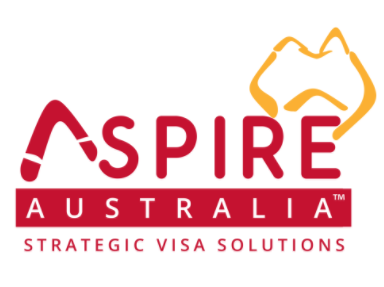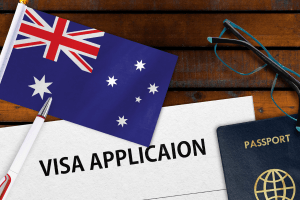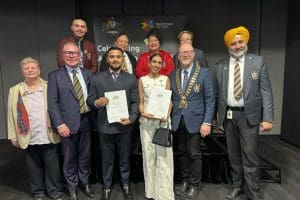When it comes to applying for a visa, the first step in the process is usually preparing an application.
The General Skilled Migration Programme works differently.
The GSM programme is for highly skilled workers. It is designed to address shortages in some of the industries in Australia.
Due to the selective nature of the GSM, applicants must first submit an Expression of Interest (EOI), where they will then be considered – and invited to apply, should they be an attractive candidate.
The Expression of Interest is your key to unlocking a visa invitation. It enables you to be visible and available to be selected for either a state sponsorship – or a visa invitation.
The SkillSelect system has created a highly competitive programme, in which candidates attempt to claim as many points as possible.
So, how does SkillSelect work – and how can you ensure your EOI shows off your full range of attributes, to ensure your best chance of an invitation?
How the ‘Expression of Interest’ developed
Prior to 1 July 2012, the General Skilled Migration programme allowed candidates to apply directly for an Australian skilled visa, if they met the thresholds of skills, English and points.
From that date, however, SkillSelect changed the landscape to establish a selective migration programme – where key skills required across Australia could be identified and candidates invited to make an application based on need.
A key component of the new SkillSelect programme was the EOI. It allows the government to filter through interested applicants and select the best candidates to extend an invitation to.
This makes your EOI a crucial element in your journey to live and work in Australia.
Let’s take a look then, at how caring for your EOI may improve your prospects for visa selection.
Getting your Expression of Interest right
Think of the Expression of Interest as an application for a job.
All the data included should be accurate and will, eventually, need to be backed up by verifiable evidence. This will include things like certificates, references, test results and personal documentation.
It is extremely important to get it right, for when the Department eventually assesses your score.
Why? If you have claimed too many points in the EOI, points for which you are in fact not eligible, and your actual score is less – you will not meet the visa requirements when it comes time to be assessed.
This means it is essential to only claim the points for which you know you are eligible and can support with evidence.
Common mistakes candidates make in their Expression of Interest
The Expression of Interest is NOT an application for a visa.
It is a summary of your attributes. The EOI itself will not be assessed and you are not required to produce any documents with its submission. It is only at visa stage that your attributes will be verified.
So, what are the most common mistakes candidates make in claiming points for their EOI?
Education
Not all studies are equal.
Points are available for qualifications that meet Australian standards, such as a diploma or bachelor’s degree.
Unfortunately, some qualifications from overseas universities are not considered equivalent to an Australian qualification. In that case, lower points – or no points – may be available. This could drastically affect your points score.
For more information about recognition of your educational qualifications, the Department of Home Affairs has a points table, for your reference.
Employment
Many candidates make the mistake of attempting to claim points for all employment that appears to be relevant to their career.
But here’s the thing – points are only available for paid work that is in the nominated occupation or a closely related occupation.
Work that is part of a degree course, that is unpaid or precedes the relevant qualification cannot be claimed.
The formal skills assessment will generally indicate which employment is considered relevant and at the skill level for the occupation – so it is worthwhile obtaining a full assessment of work experience from the preceding ten years.
Something to keep in mind is that you will need to obtain supporting evidence in regards to any work that you wish to claim points for. Without verifiable evidence, the Department will not allocate the points. Here is a checklist you can use, to make sure you include everything you need.
Character
All applicants for Australian visas must meet public interest criteria, which includes health and character.
You might be wondering, how do they assess my character?
Each application will have a series of questions to elicit responses that may alert the Department to a candidate who does not meet the character criteria.
For example, some candidates will tick ‘no’ to all questions – but when a police report is obtained at a later date, an offence will show up on the report.
It might be worth obtaining the relevant police reports early, so you can be sure of what will appear on them and provide the correct information from the beginning.
This is also a good time to review if information provided in previous visa applications was correct. If not, then it is important to notify the Department and update it.
Gaining more points after your EOI is lodged
With all your data verified and your EOI submitted, remember that you can update your EOI as your attributes improve.
For example, if you
- obtain better English results
- wish to claim points for partner skills
- complete a professional year
- obtain a new job
Keeping your EOI up to date will ensure that at the next selection round, you are presenting yourself as the best candidate you can be.
Your best chance of success
At Aspire Australia, we use our experience and insider knowledge to give you an edge.
We have created a guidebook, How to Live and Work Down Under, to walk you through the process, step-by-step. It compares the different visa pathways, outlines the criteria and the Skills Occupation Lists.
Download it today, to get a better understanding of the GSM Programme.
If you decide you want more information – or someone to guide you through the visa process from beginning to end – contact us for an appointment today,
We hope to hear from you!
For our next blog, we will look into using state / territory sponsorship as a strategy to improve your selection prospects.









